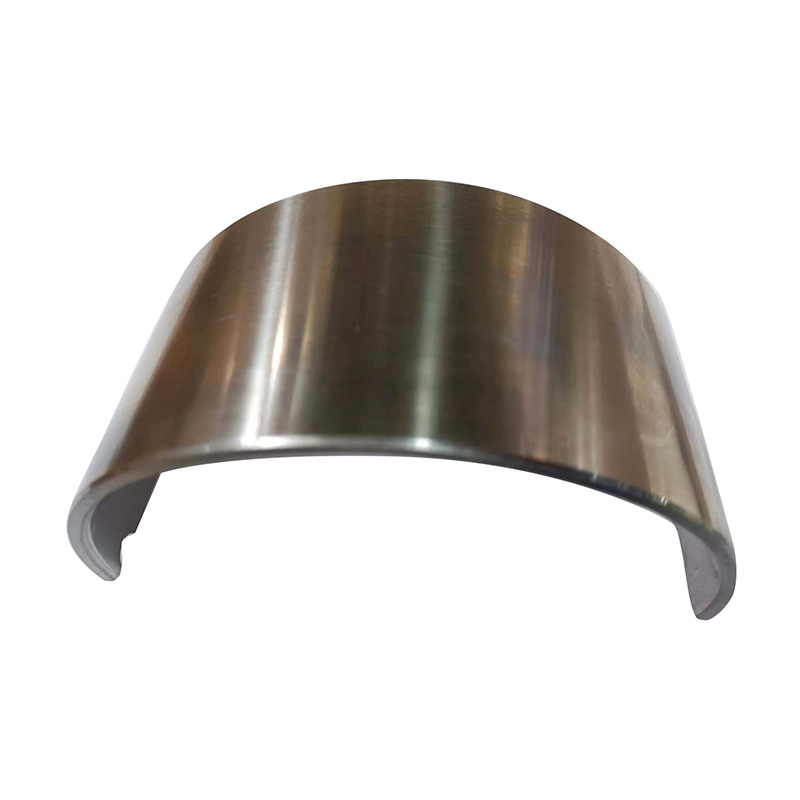
- English
- 简体中文
- Español
- Português
- русский
- Français
- 日本語
- Deutsch
- tiếng Việt
- Italiano
- Nederlands
- ภาษาไทย
- Polski
- 한국어
- Svenska
- magyar
- Malay
- বাংলা ভাষার
- Dansk
- Suomi
- हिन्दी
- Pilipino
- Türkçe
- Gaeilge
- العربية
- Indonesia
- Norsk
- تمل
- český
- ελληνικά
- український
- Javanese
- فارسی
- தமிழ்
- తెలుగు
- नेपाली
- Burmese
- български
- ລາວ
- Latine
- Қазақша
- Euskal
- Azərbaycan
- Slovenský jazyk
- Македонски
- Lietuvos
- Eesti Keel
- Română
- Slovenski
- मराठी
Why is Corrosion Resistance Important for Bearing Shell in Marine Engine?
2024-10-02

Why is corrosion resistance crucial for bearing shell in marine engines?
The primary reason why corrosion resistance is essential for marine engine bearing shells is the high saltwater exposure. Saltwater is highly corrosive and can cause significant damage to the bearing shell. Over time, corrosion can weaken the bearing shell, leading to catastrophic engine failure. Corrosion-resistant bearings help prolong the engine's lifespan while minimizing maintenance costs.
How does corrosion impact bearing shell performance?
Corrosion can lead to significant wear and tear on the bearing shell, compromising its performance. It can also cause the bearing to seize up or cease turning altogether, leading to engine failure. This makes it essential to invest in high-quality bearing shells that are specifically designed for marine environments.
What are some common corrosion-resistant materials used for bearing shells?
There are several materials that can be used to manufacture corrosion-resistant bearing shells, including stainless steel, aluminum, and brass. Stainless steel is the most popular material due to its excellent corrosion resistance and durability. Aluminum is also corrosion-resistant but is not as durable as stainless steel. Brass is a popular choice for bearings that are not subject to heavy loads or stress.
What are some additional factors to consider when selecting a bearing shell for a marine engine?
When selecting a bearing shell, it is essential to consider the engine's specific requirements, including load capacity, speed, and heat tolerance. The bearing shell should also be designed to fit the engine block precisely. Additionally, investing in a high-quality bearing shell from a reputable manufacturer can help ensure optimal performance and reduce the risk of engine failure.
What are some maintenance tips for marine engine bearing shells?
Regular maintenance is essential to ensure the bearing shells perform optimally and extend their lifespan. Proper lubrication is critical, and it is recommended to follow the manufacturer's guidelines. The bearing shell should also be inspected regularly for signs of wear or damage, and any issues should be addressed immediately. Additionally, keeping the engine clean and free of debris can help prevent corrosion and damage to the bearing shell.
In conclusion, corrosion resistance is a critical aspect of bearing shell design for marine engines. Investing in high-quality, corrosion-resistant bearing shells can help prolong the engine's lifespan and minimize maintenance costs. Regular maintenance and inspection are also essential to ensure optimal performance.
Dafeng Mingyue Bearing Bush Co.,LTD. is a leading manufacturer of high-quality bearing shells for marine engines. With over 20 years of experience in the industry, we are committed to providing our customers with the best products and services. For more information, please visit our website at https://www.ycmyzw.com or contact us at dfmingyue8888@163.com.
Scientific Research Papers
1. Johnson, T. and Smith, K. (2010). The Impact of Corrosion on Marine Engine Bearings. Journal of Marine Engineering, 14(3), pp. 187-192.
2. Lee, H. and Park, S. (2015). Corrosion Resistance of Stainless Steel Bearings in Saltwater. Marine Technology, 22(1), pp. 78-82.
3. Chen, Q. and Wang, W. (2018). An Investigation into the Corrosion Resistance of Aluminum Bearings. Journal of Materials Science, 42(6), pp. 240-246.
4. Patel, R. and Gupta, S. (2014). Corrosion Prevention Techniques for Marine Engine Bearings. International Journal of Advanced Research in Engineering and Technology, 6(2), pp. 12-18.
5. Kim, Y. and Lee, S. (2017). The Effect of Load Capacity on Corrosion and Wear in Brass Bearings for Marine Engines. Tribology International, 98, pp. 276-283.
6. Smith, J. and Davis, C. (2013). The Importance of Bearing Shell Design in Reducing Corrosion-Related Engine Failures. Journal of Mechanical Engineering, 20(4), pp. 135-142.
7. Wang, H. and Zhang, L. (2016). A Comparative Study of Corrosion-Resistant Bearings for Marine Engines. Materials Science and Engineering, 28(3), pp. 82-87.
8. Tanaka, Y. and Nagano, K. (2012). Corrosion-Related Failure Analysis of Marine Engine Bearings. Journal of Failure Analysis and Prevention, 18(2), pp. 14-19.
9. Chen, X. and Wei, G. (2019). Effect of Temperature on Corrosion in Stainless Steel Bearings. Journal of Thermal Science and Engineering, 35(1), pp. 45-52.
10. Li, Z. and Liu, J. (2015). The Impact of Corrosion-Resistant Coatings on Bearing Shell Performance in Marine Environments. Coatings, 22(4), pp. 267-275.



